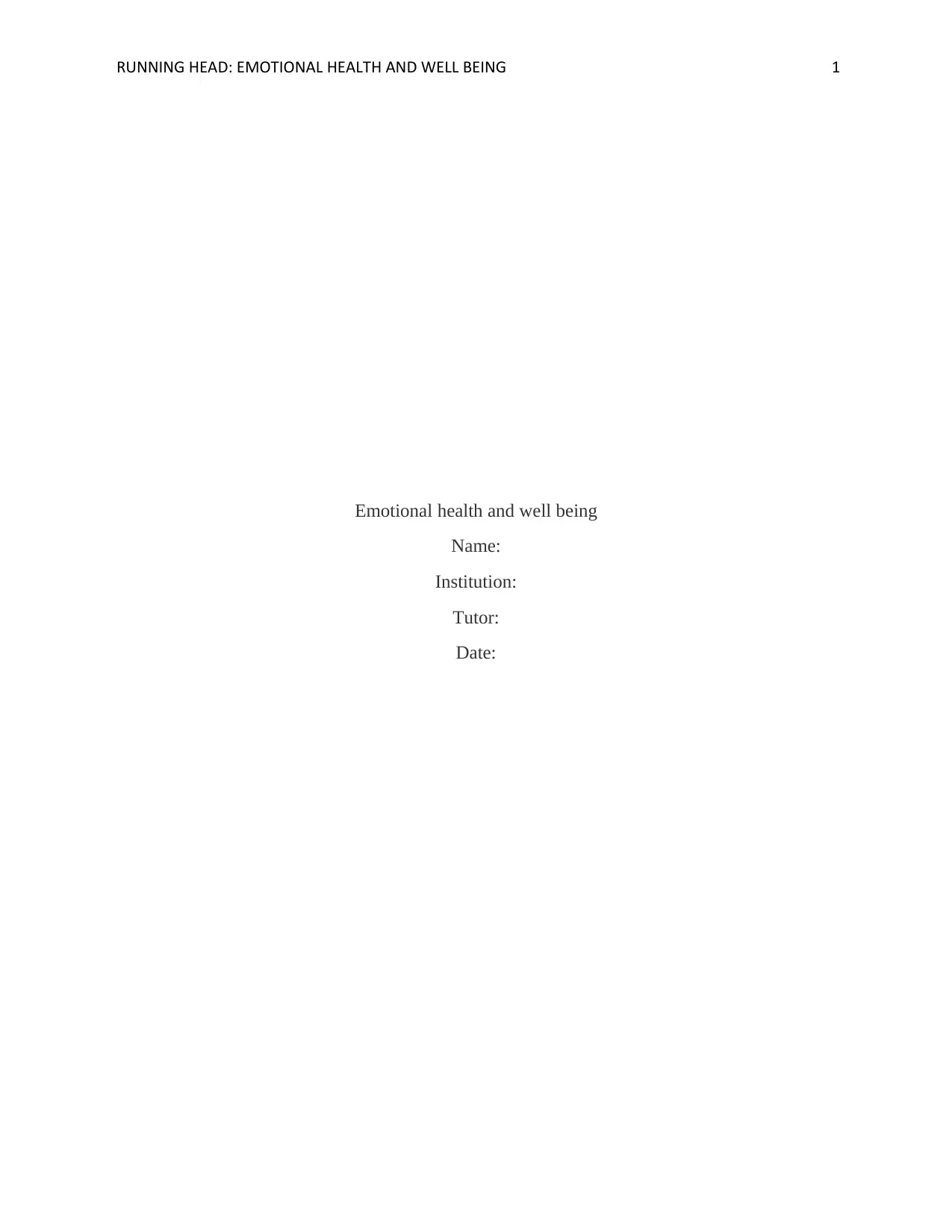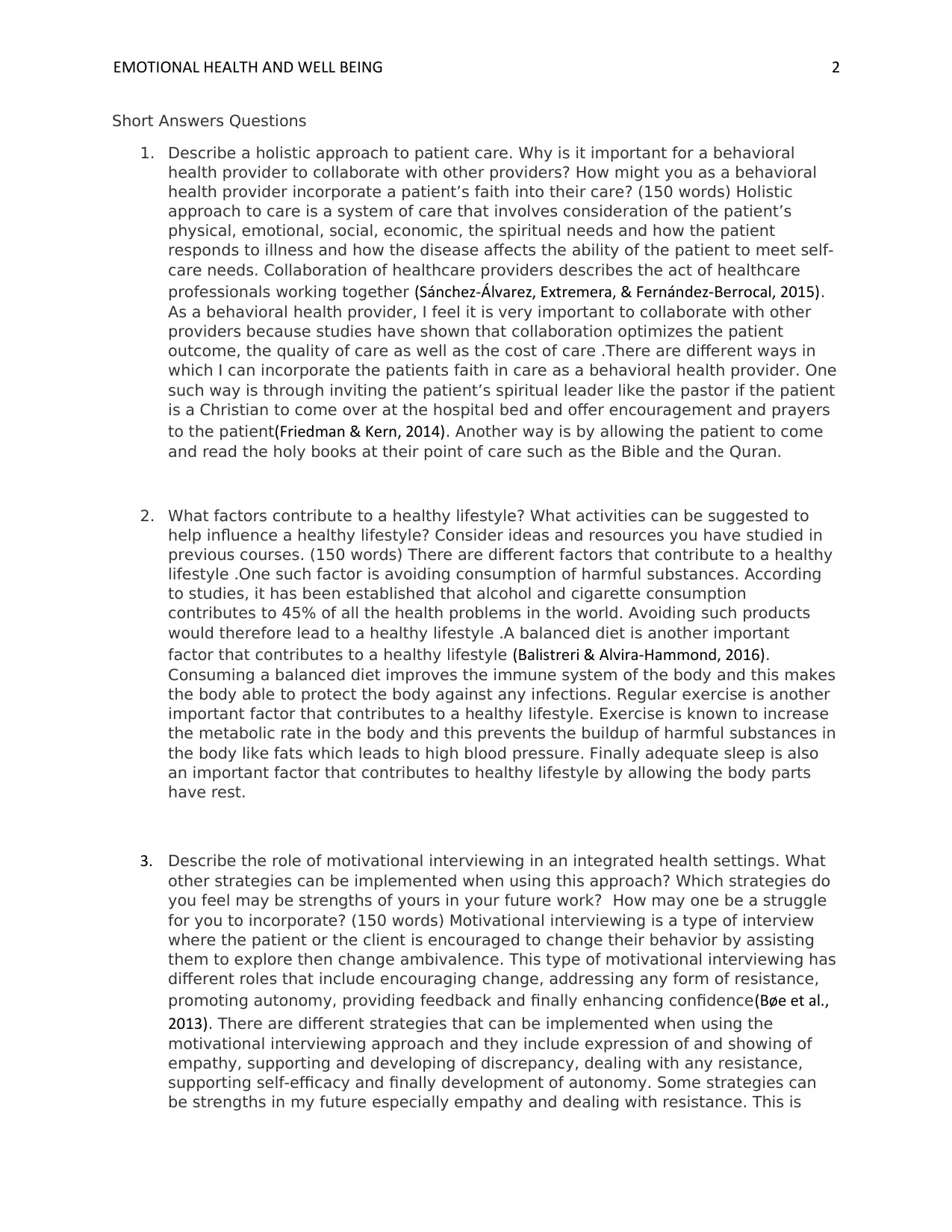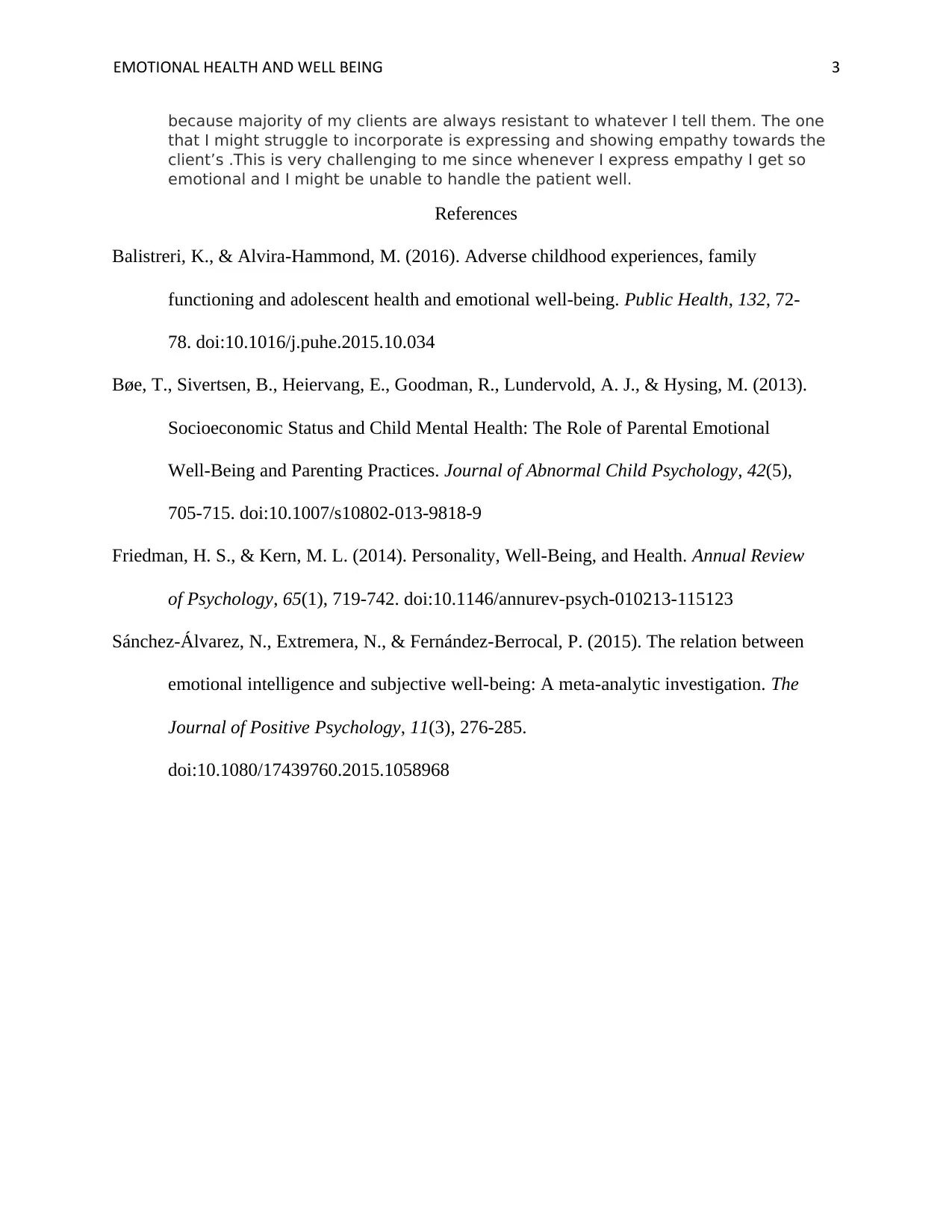Emotional Health: Holistic Patient Care and Motivational Interviewing
VerifiedAdded on 2023/06/10
|3
|895
|266
Homework Assignment
AI Summary
This assignment features short answer questions related to emotional health and well-being, focusing on a holistic approach to patient care. It emphasizes the importance of collaboration among healthcare providers and integrating a patient's faith into their care. Furthermore, it identifies factors contributing to a healthy lifestyle and suggests activities to promote it. The role of motivational interviewing in integrated health settings is also discussed, along with effective strategies and potential challenges in implementation. Desklib provides access to similar solved assignments and study resources for students.
1 out of 3









![[object Object]](/_next/static/media/star-bottom.7253800d.svg)